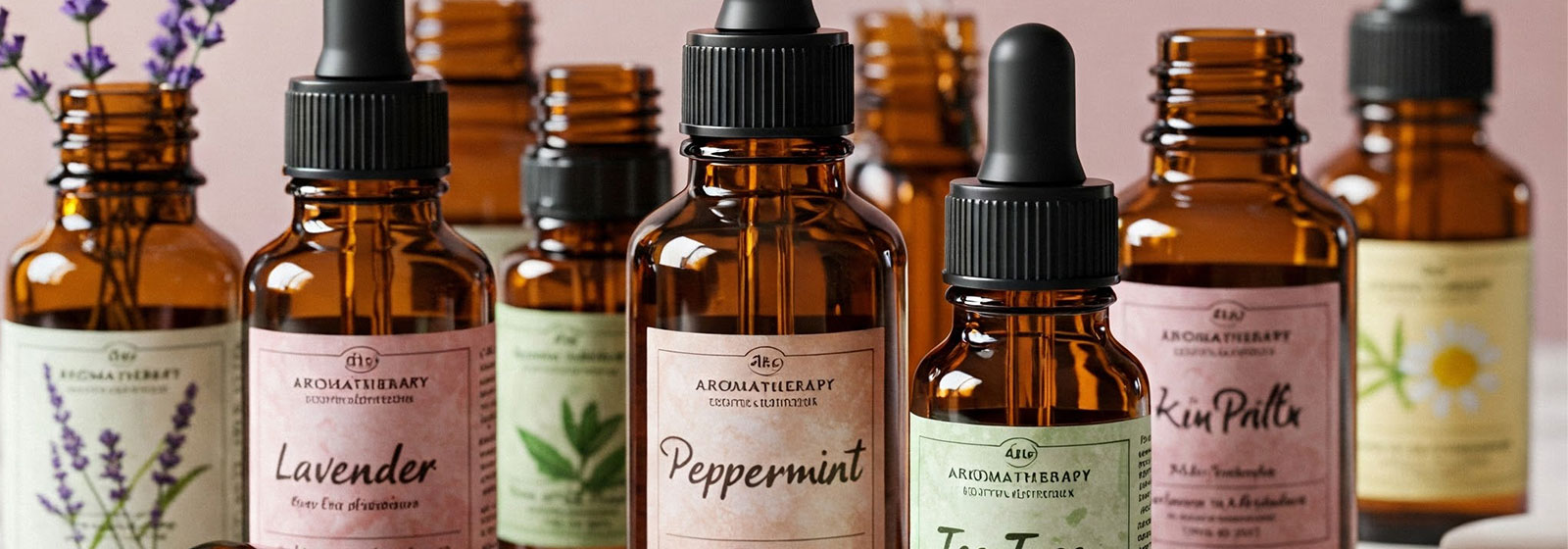
Aromatherapy is a holistic healing practice that uses natural plant extracts to promote health and well-being. Also known as essential oil therapy, aromatherapy uses aromatic essential oils medicinally to improve the health of the body, mind, and spirit. It enhances both physical and emotional health.
What are Essential Oils?
Essential oils are concentrated plant extracts that retain the natural smell and flavor, or "essence," of their source. They are typically extracted by distillation, such as steam distillation, or mechanical methods, such as cold pressing. Once the aromatic chemicals have been extracted, they are combined with a carrier oil to create a product that's ready to be used.
Benefits of Aromatherapy:
Stress Reduction:
Aromatherapy offers a natural approach to stress reduction by utilizing the therapeutic properties of essential oils derived from plants. When inhaled, the scents of these oils travel directly to the brain's limbic system, the area associated with emotions, memory, and stress regulation. This interaction can trigger a calming response, helping to slow heart rate, lower blood pressure, and ease feelings of anxiety and tension. Popular essential oils known for their relaxing effects include lavender, chamomile, bergamot, and frankincense. Incorporating these scents into daily routines, whether through diffusers, baths, or massage, can create a peaceful atmosphere and promote a greater sense of well-being, effectively mitigating the impact of daily stressors.
Improved Sleep:
Aromatherapy can be a valuable tool for enhancing sleep quality by leveraging the calming and sedative properties of certain essential oils. Scents like lavender, chamomile, valerian, and sandalwood are widely recognized for their ability to relax the nervous system, quiet the mind, and reduce anxiety, all of which can interfere with falling asleep and staying asleep. By inhaling these aromas, signals are sent to the brain that promote relaxation and drowsiness. Using these oils in a diffuser in the bedroom before sleep, adding a few drops to a warm bath, or even applying a diluted blend to pulse points can help establish a calming pre-sleep routine, making it easier to drift off naturally and enjoy a more restful, uninterrupted night.
Pain Management:
Aromatherapy offers a complementary method for pain management by utilizing essential oils with analgesic (pain-relieving) and anti-inflammatory properties. Certain oils, such as peppermint, eucalyptus, ginger, rosemary, and lavender, can be applied topically (properly diluted in a carrier oil) to target localized areas of discomfort, like sore muscles, aching joints, or tension headaches. The application through massage can further enhance relief by improving circulation and easing muscle tension. Additionally, inhaling specific scents may influence the brain's perception of pain and promote relaxation, which can indirectly help manage chronic pain conditions. While not a replacement for conventional medical treatment, aromatherapy can provide a natural way to soothe aches and reduce inflammation, contributing to overall comfort and well-being.
Mood Enhancement:
Aromatherapy can serve as a powerful tool for mood enhancement, leveraging the direct link between scent and the brain's emotional center, the limbic system. Inhaling specific essential oils can stimulate the release of neurotransmitters like serotonin and dopamine, helping to elevate spirits, increase feelings of happiness, and combat lethargy or sadness. Uplifting citrus oils such as bergamot, orange, and lemon are renowned for their energizing and mood-boosting properties, while oils like ylang-ylang, geranium, and clary sage can help promote emotional balance and ease feelings of tension. Diffusing these scents in your home or workspace, or adding a few drops to a personal inhaler, can provide a simple, natural way to improve your outlook, foster positivity, and support overall emotional well-being.
Boosted Immunity:
While aromatherapy should not replace conventional methods for maintaining health, some essential oils possess properties that may offer supportive benefits to the immune system. Certain oils, like tea tree, eucalyptus, oregano, thyme, and lemon, exhibit antimicrobial, antiviral, and anti-inflammatory effects in laboratory settings. Using these oils through diffusion or steam inhalation might help cleanse the air or ease respiratory symptoms associated with common illnesses. Furthermore, by reducing stress – a known factor that can weaken immune defenses – aromatherapy indirectly supports the body's natural ability to stay healthy. Although more research is needed to fully understand the direct impact on human immunity, incorporating specific essential oils known for their cleansing properties and stress-relieving effects can be a complementary practice to promote overall well-being and potentially enhance resilience.
How to Use Essential Oils:
Inhalation:
Add a few drops to a diffuser, or inhale directly from the bottle.
Topical Application:
Mix with a carrier oil, such as coconut or jojoba oil, and apply to the skin.
Massage:
Incorporate essential oils into a massage oil for relaxation and pain relief.
Bath:
Add a few drops to a warm bath for a soothing and therapeutic experience.
Popular Essential Oils & Their Uses:

1. Lavender:
Renowned for its deeply calming aroma, lavender essential oil is widely used to soothe stress and anxiety, making it an effective natural aid for promoting relaxation and improving sleep quality.

2. Tea Tree:
With its powerful antiseptic and antibacterial properties, tea tree essential oil is commonly used to cleanse minor wounds, combat skin blemishes, and act as a natural purifying agent.

3. Peppermint:
Known for its invigorating scent and cooling sensation, peppermint essential oil is frequently applied topically to alleviate headaches and inhaled to boost energy levels and mental alertness.

4. Eucalyptus:
Valued for its strong, camphoraceous aroma, eucalyptus essential oil is often inhaled via steam or diffusion to help clear nasal passages and relieve respiratory congestion.

5. Lemon:
With its bright, refreshing citrus scent, lemon essential oil is popular for uplifting mood and promoting positivity, while its natural cleansing properties make it useful for purifying the air and surfaces.

6. Chamomile:
Esteemed for its gentle nature, chamomile essential oil is utilized for its potent anti-inflammatory properties, helping to soothe irritated skin conditions and calm inflammation.
In conclusion, incorporating aromatherapy into your self-care practices offers a potent yet gentle pathway to enhanced well-being, leveraging the natural essences of plants to soothe the mind, uplift the spirit, and promote relaxation. Whether diffused, inhaled, added to baths, or used in massage, these aromatic tools can become cherished rituals that help counterbalance the stresses of modern life. However, the true benefits are unlocked only when coupled with mindful practice; this means prioritising high-quality, pure essential oils to ensure efficacy and safety, and diligently adhering to guidelines regarding dilution, application methods, and awareness of individual sensitivities. By approaching aromatherapy with respect and knowledge, it can indeed be a wonderfully fragrant and supportive addition to your personal wellness journey.
 Login to Leave the First Comment
Login to Leave the First CommentMore articles you may enjoy:





 Menu
Menu
